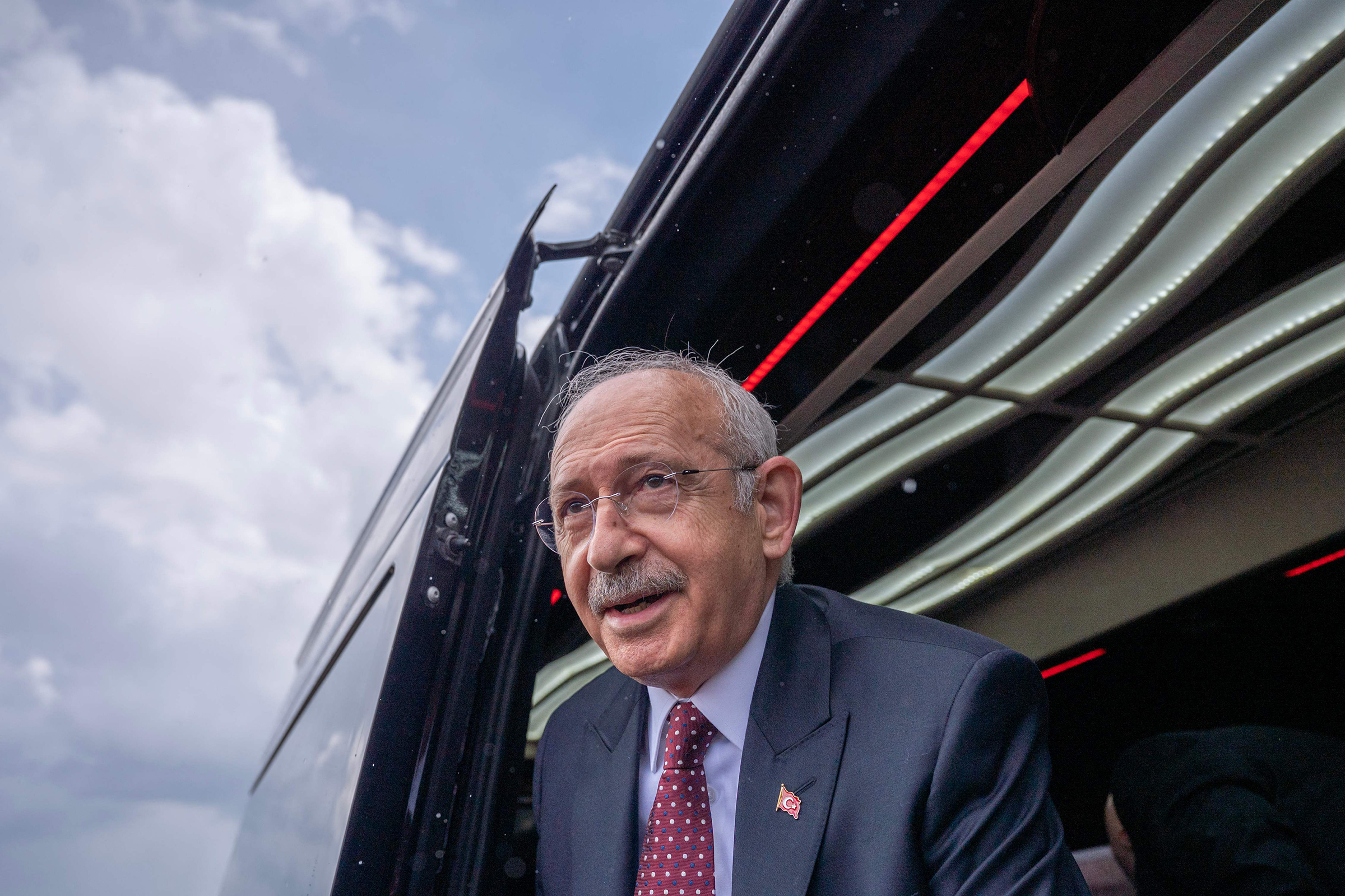Kemal Kılıçdaroğlu, the head of Turkey’s opposition Republican People’s Party (CHP), keeps a framed newspaper cartoon in his office that shows him dressed in sandals and shawl to resemble Mahatma Gandhi, walking toward President Recep Tayyip Erdoğan.
“Justice!” he says, as Erdoğan gulps in fear.
It’s a reference to when Kılıçdaroğlu, nicknamed “Gandhi Kemal” by Turkish media, led a march from Ankara, the capital, to Istanbul in 2017 to protest the jailing of thousands of civil servants, activists, and journalists under Erdoğan, including a CHP Member of Parliament.
The crackdowns have continued, and Kılıçdaroğlu is now challenging Erdoğan again, this time at the ballot box. “This is an election for those defending democracy against authoritarian rule,” Kılıçdaroğlu, 74, tells TIME in an April 10 interview. After two decades under Erdoğan, 69, millions of Turks see Kılıçdaroğlu as the last best hope to end the president’s near-total control of the state and bring back a more balanced form of government. But winning the May 14 general election will be an even tougher slog than the 280 miles from Ankara to Istanbul.
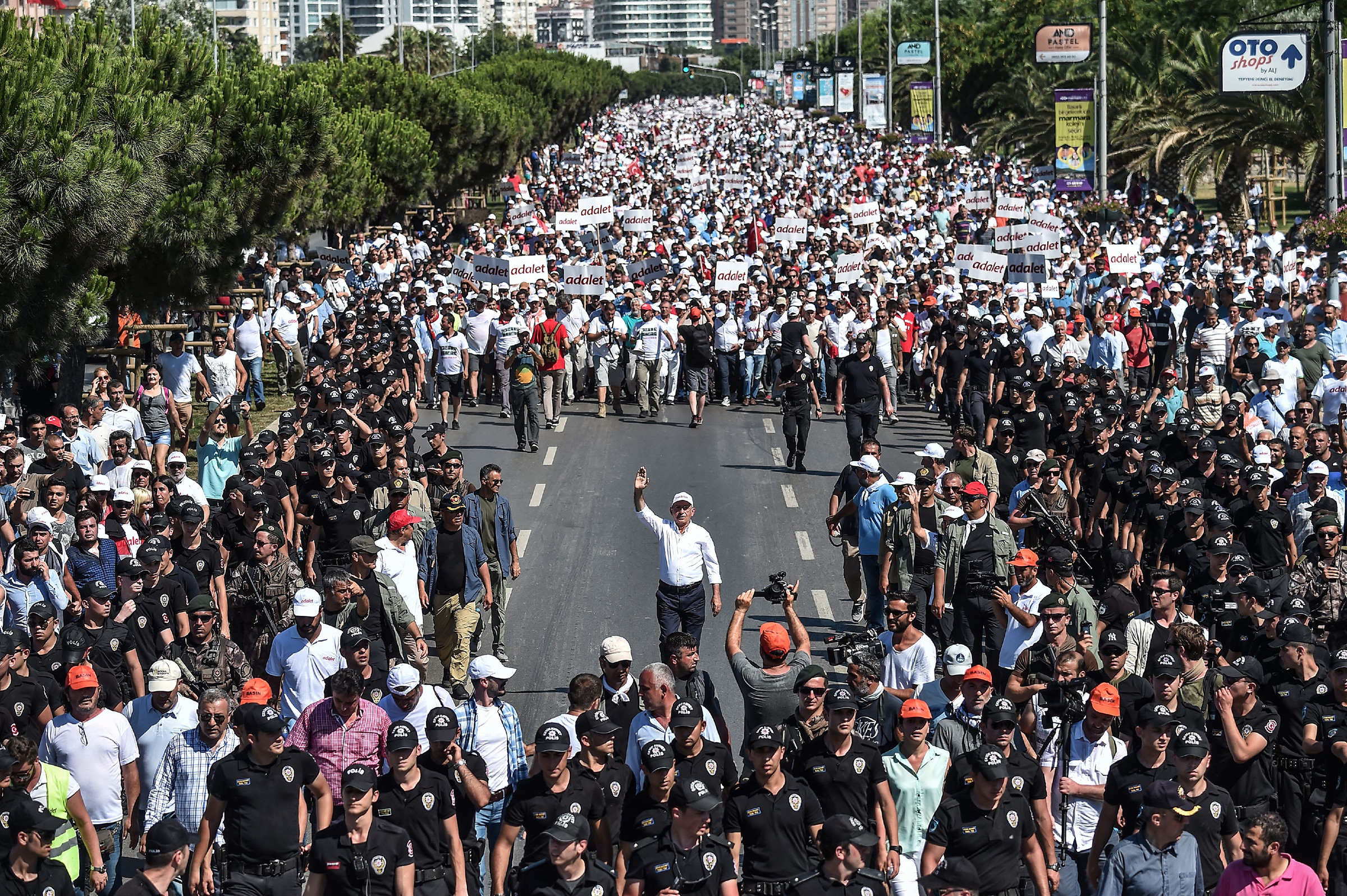
Still, Kılıçdaroğlu is optimistic. “We will end an oppressive government by democratic means,” he says, sitting in front of the red-and-black silhouette of the beloved Mustafa Kemal Atatürk, who founded the Turkish republic a century ago, and transformed it into a modern, secular country.
The outcome of the election matters not just for Turkey—which sits at the crossroads of Europe and the Middle East and is home to 85 million people, including almost 4 million refugees—but for some of the most important global issues today. Erdoğan has held Sweden’s bid to join NATO hostage to his own political goals and forged closer ties with Russia, to the point that the U.S. kicked Turkey out of a program to receive F-35 fighter jets. Kılıçdaroğlu says he would rebuild relationships with the U.S., NATO, and the European Union to make Turkey “part of the civilized world again.”
More from TIME
The time is ripe for change. Erdoğan, who swept into office in 2003 promising competent governance after the 1999 earthquake, has created a cost-of-living crisis with his insistence that high interest rates are the “mother of all evil.” Rather than raise them as most economists advise, he’s continued to slash them, sending inflation at one point last year to a staggering 85%. To make matters worse, powerful twin earthquakes in February killed at least 50,000 people, sparking outrage that the authorities had given “zoning amnesties” to unsafe buildings and were late to rescue victims when they collapsed.
Kılıçdaroğlu, who visited the earthquake zone before Erdoğan did, has promised tax breaks to attract investment and appointed progressive economic advisors including Americans Jeremy Rifkin and Daron Acemoğlu. But while economic concerns and the earthquake aftermath are key issues, observers say this is really a vote on Erdoğan’s heavy-handed “one-man rule.”
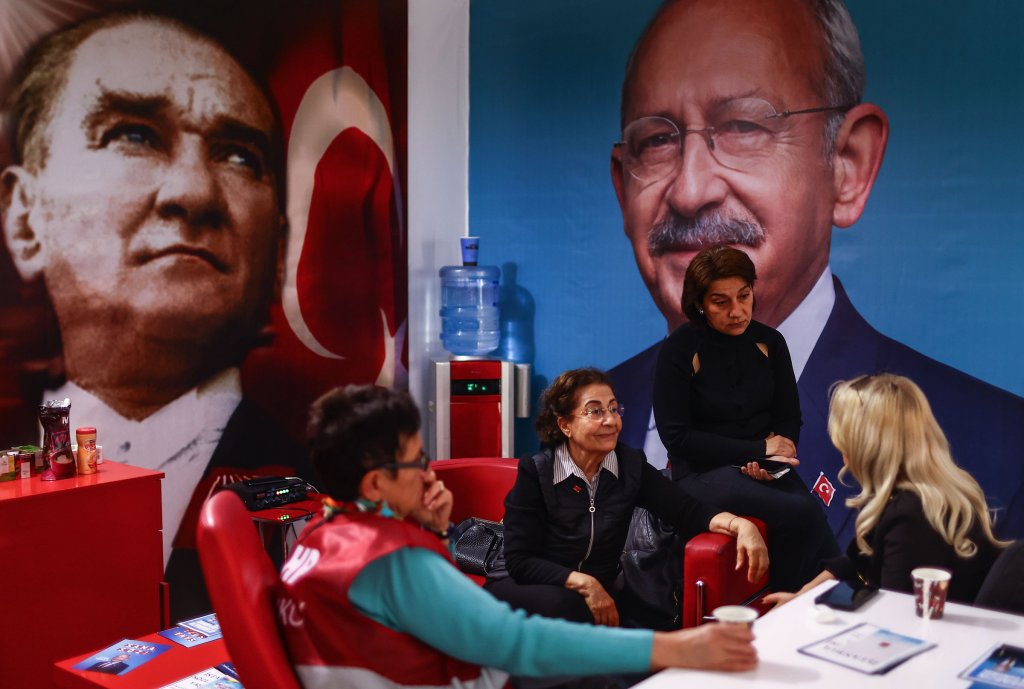
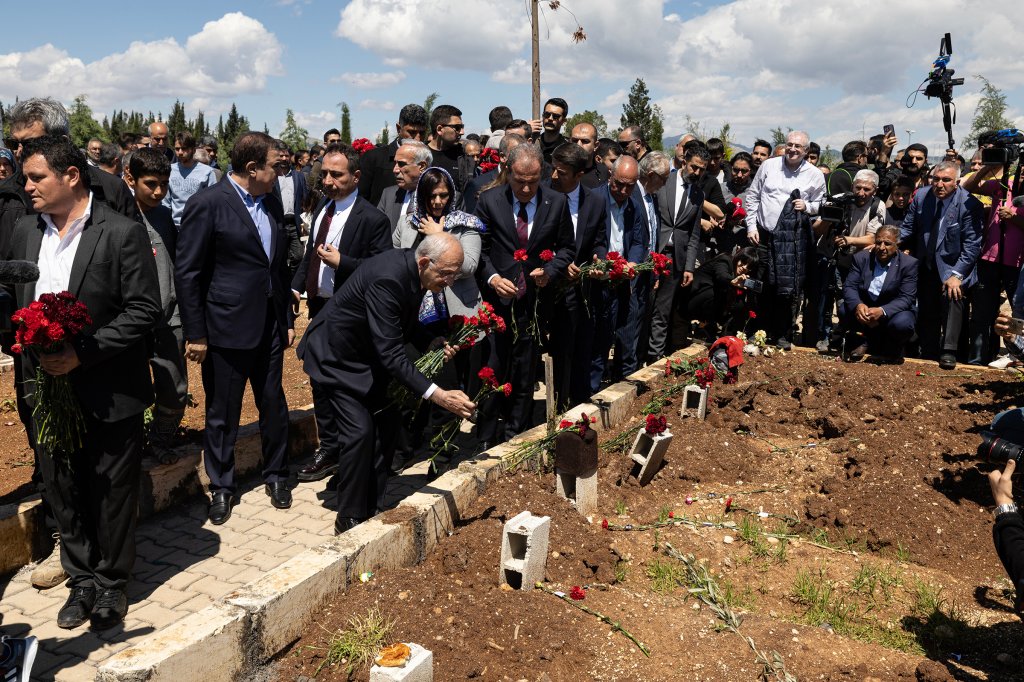
Following a failed military coup against him in 2016, Erdoğan staged a power grab via a 2017 constitutional referendum that transformed Turkey from a parliamentary system into an executive presidency. The changes greatly expanded Erdoğan’s authority as president and triggered protests, with the Council of Europe rights group calling it “dangerous” for democracy. (Erdoğan claims it also “reset” the two-term limit, paving the way for him to seek a third five-year presidential term this May; he previously served as prime minister from 2003 to 2014, then the country’s most important office.) Government agencies and the courts have since been stacked with loyalists, and critics continue to be imprisoned by the dozens, sometimes for nothing more than a disparaging post on social media. Most of the press is now beholden to Erdoğan’s Islamist Justice and Development Party (AKP), and Turkey has gone from “partly free” to “not free” in the annual Freedom House rankings.
Ahead in most polls, Kılıçdaroğlu is the first candidate with a serious shot at ending the Erdoğan era. He has united a fractious and ideologically diverse opposition behind the pledge to bring back the parliamentary system of government and restore rule of law. After curtailing his own powers as president, he’ll leave office to “sit in a corner, playing with my grandchildren,” he promises. “I’m not someone with ambitions.”
“We need to restore the democracy that we enjoyed for many years and that has been slipping from under our feet,” Kılıçdaroğlu adds.
The only problem is that the short, mild-mannered 74-year-old Kılıçdaroğlu doesn’t seem like he could fight his way to the head of a crowded checkout line, let alone the Turkish government. While the charismatic and combative Erdoğan hasn’t lost an election since 1989, Kılıçdaroğlu hasn’t been able to win more seats for the center-left CHP since he became party leader in 2010. His strength has been consensus-building behind the scenes, not firing up voters. “I’m a calm person,” Kılıçdaroğlu says. “I keep my composure against very harsh criticism, and then I respond later.”
“Calm” is certainly one way to put it. Genial yet restrained, he chuckles at cheesy puns, thinks carefully before he speaks, and avoids talking about anything even mildly scintillating, including his personal life. His web page brags that he was once named “Bureaucrat of the Year” by Turkey’s Economic Trend magazine. He enjoys recording video messages with a glass of tea in his tiny kitchen more than giving stump speeches. “Kemal never raises his voice, he never shouts,” his wife Selvi has said. “You can’t even have a decent argument with him.”
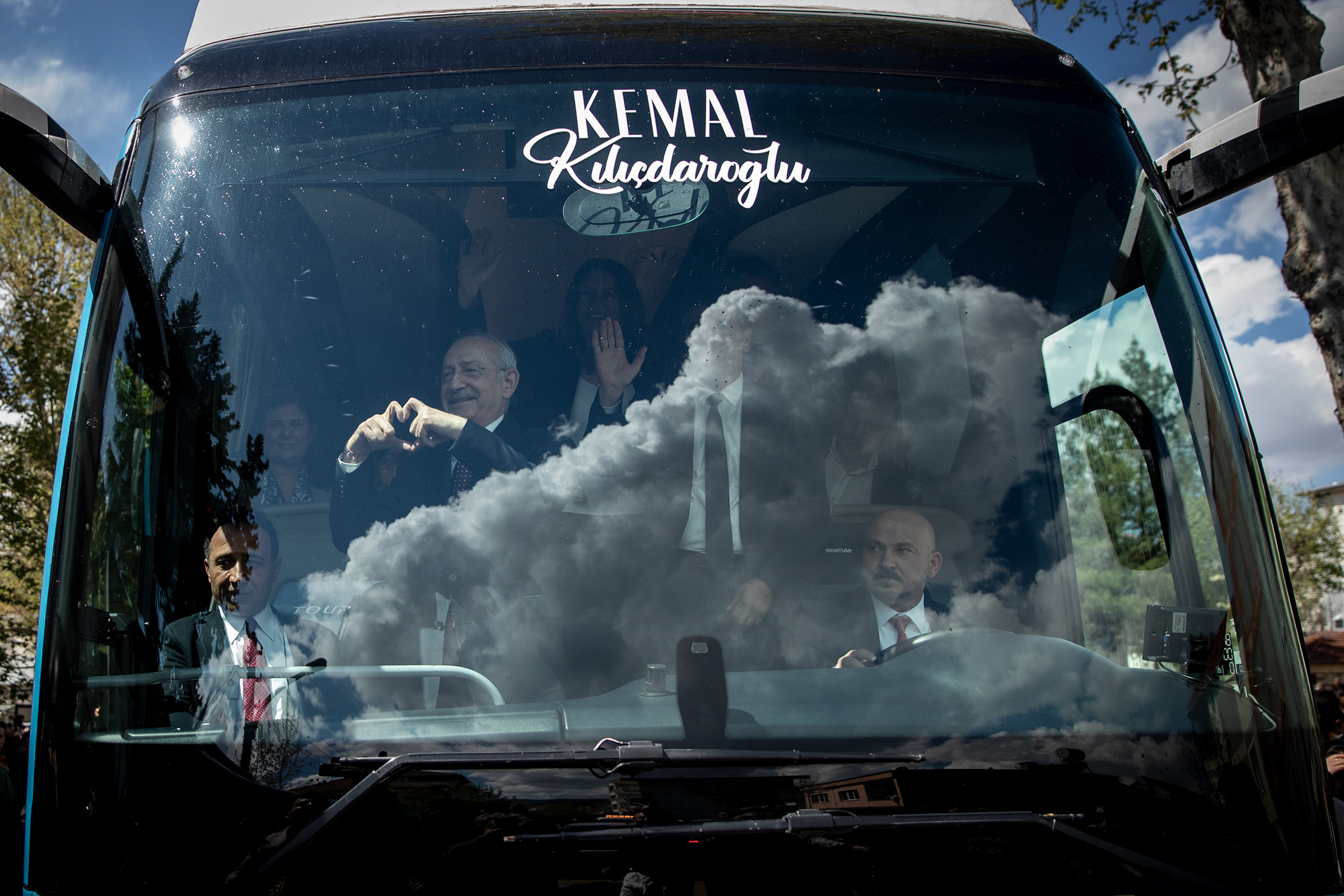
But for some, calm is refreshing after 20 years of Erdoğan’s divisive populism. A senior international diplomat with experience in Turkey, who declined to be named for fear of upsetting relations, calls Kılıçdaroğlu “the anti-Erdoğan.” “There are points… when a grayer personality is exactly what people want,” the diplomat adds.
Winning the presidency would be the perfect ending to a story that began in poverty in the remote Tunceli region of eastern Turkey. Kılıçdaroğlu was born into a family of nine in the isolated mountain village of Ballıca, raising goats and walking to school barefoot before his father moved them to a string of larger towns for various civil service postings. The young Kemal played the saz, a traditional folk instrument, and read vociferously, graduating first in his high school class. Unlike his schoolmates, he dreamed of becoming a teacher. “When everyone was saying police and soldiers, I said I prefer to be a civilian,” he recalls.
At university in Ankara, Kılıçdaroğlu was active in left-wing protests and graduated to a job as a tax inspector. He married a cousin from his hometown, which was common in parts of Turkey, and then had kids and worked his way up to director of the national social security institution.
Politics were Kılıçdaroğlu’s retirement hobby. He made it into parliament in 2002, at the age of 53, with the CHP, which appreciated what opposition consultant Selim Sazak calls his “accountant’s charisma” in uncovering corruption by top AKP members. At a televised debate in 2008, Kılıçdaroğlu scolded the then-mayor of Ankara Melih Gökçek with the air of a schoolmaster. By 2010, he had risen to the top of the CHP with the same “patience and fortitude” that he says he admires in Gandhi.
As chairman, Kılıçdaroğlu has transformed the party from the mouthpiece of the secularist urban elite into a European-style social democratic party, calling for “reconciliation” between Turkey’s various political, ethnic, and religious groups. Last year, he came out in support of women’s right to wear Muslim headscarves in state institutions, reversing a long-held CHP position that the AKP had exploited among conservative voters.
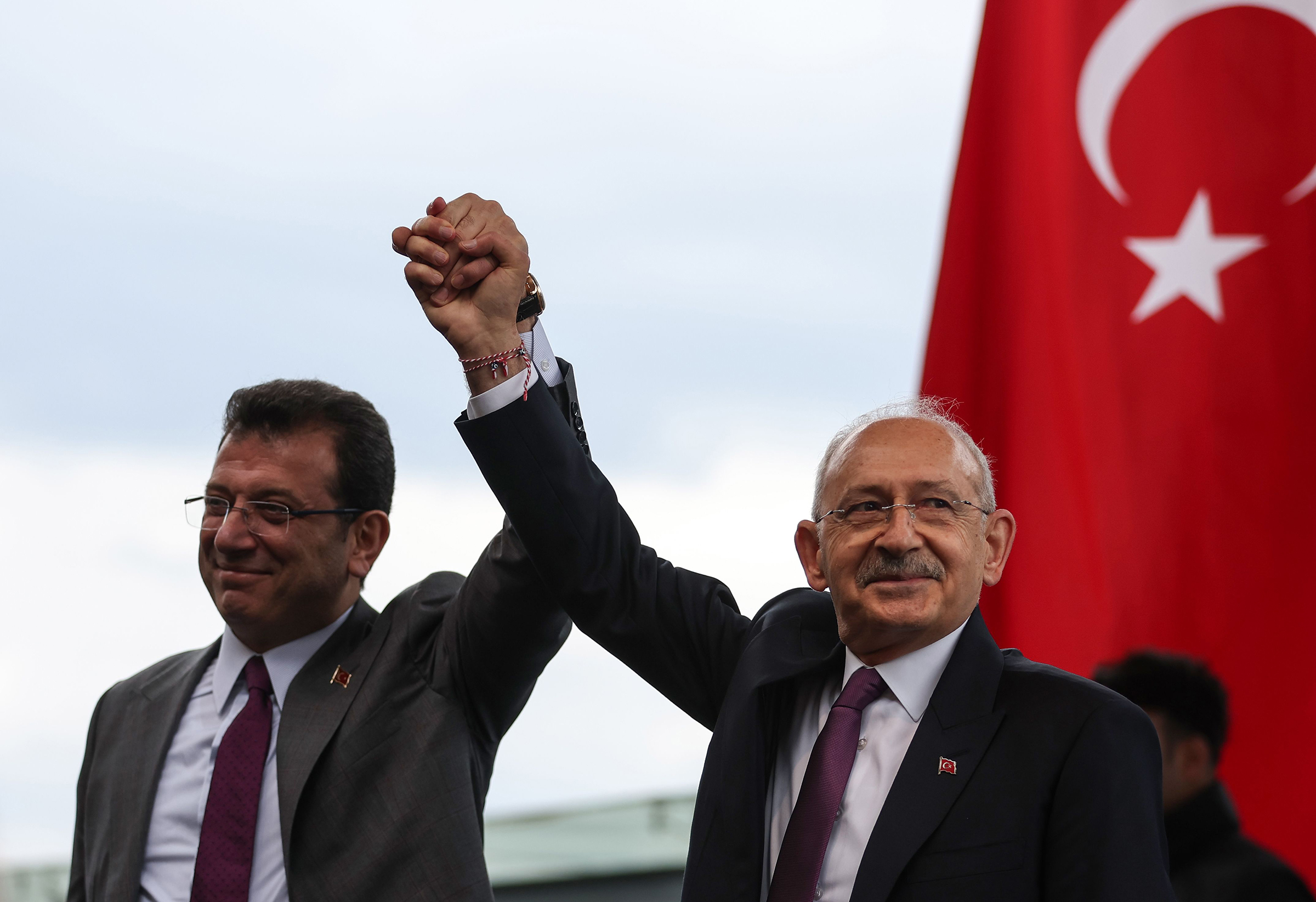
This election, Erdoğan has painted his opponent as a “Trojan horse of the imperialists” in Washington and London, and repeatedly claimed Kılıçdaroğlu is linked to the PKK, a militant group fighting for a separate state for the more than 10 million Kurds in Turkey—a group that both the U.S. and Turkey consider a terrorist organization. He has made sure to mention the minority Alevi Islamic faith of “Mr. Kemal” and blasted him for accidentally stepping on a prayer mat at a recent fast-breaking dinner during Ramadan.
The “Kurdish question” has long been fraught. Since 2015, Erdoğan’s government has been conducting ground and air attacks on Kurdish forces in neighboring Syria and Iraq, while jailing thousands of members and trying to ban the pro-Kurdish People’s Democratic Party (HDP) in Turkey.
These problems seem to be close to heart for Kılıçdaroğlu, who has written about Atatürk’s massacre of Kurdish Alevis in his home region in 1937-38. He has disavowed the PKK and even survived a PKK attack on his convoy in 2016, calling instead for dialogue with the HDP. But he’s tried not to make this a major campaign issue, or even to discuss his own ethnic background. “We don’t do identity checks,” he says. “We respect everyone’s identity.”
Kılıçdaroğlu’s greatest advantage is that he has unified much of the fractious opposition—from Turkish nationalists to Kurds—behind a single candidate, even though there were serious doubts he should be that person. The nationalist Good Party pulled out of the alliance when the other parties chose Kılıçdaroğlu in March, arguing the CHP leader was a weaker pick than Ankara mayor Mansur Yavaş or Istanbul mayor Ekrem İmamoğlu, both of whom had polled better than him. While Erdoğan has egged on Kılıçdaroğlu to run, state prosecutors have hit İmamoğlu with questionable slander and corruption charges that, if upheld by further court rulings, would prevent him from holding any elected office. Under pressure from the public, the Good Party came back into the fold after Kılıçdaroğlu agreed to appoint Yavaş and İmamoğlu as vice presidents if he wins.
Rather than sidelining İmamoğlu, Kılıçdaroğlu has tried to piggyback on his star power. At a joint rally in Çatalca, a farm town on the northern outskirts of Istanbul, he looks on with a smile as İmamoğlu warms up the crowd, his voice booming across the packed square. Kılıçdaroğlu’s speech is punchy but not as effortless. Toward the end, he leads the crowd in a chant of “everything will be fine”—a slogan borrowed from İmamoğlu’s 2021 mayoral campaign, where he pulled off a surprise win against an Erdoğan-backed candidate.
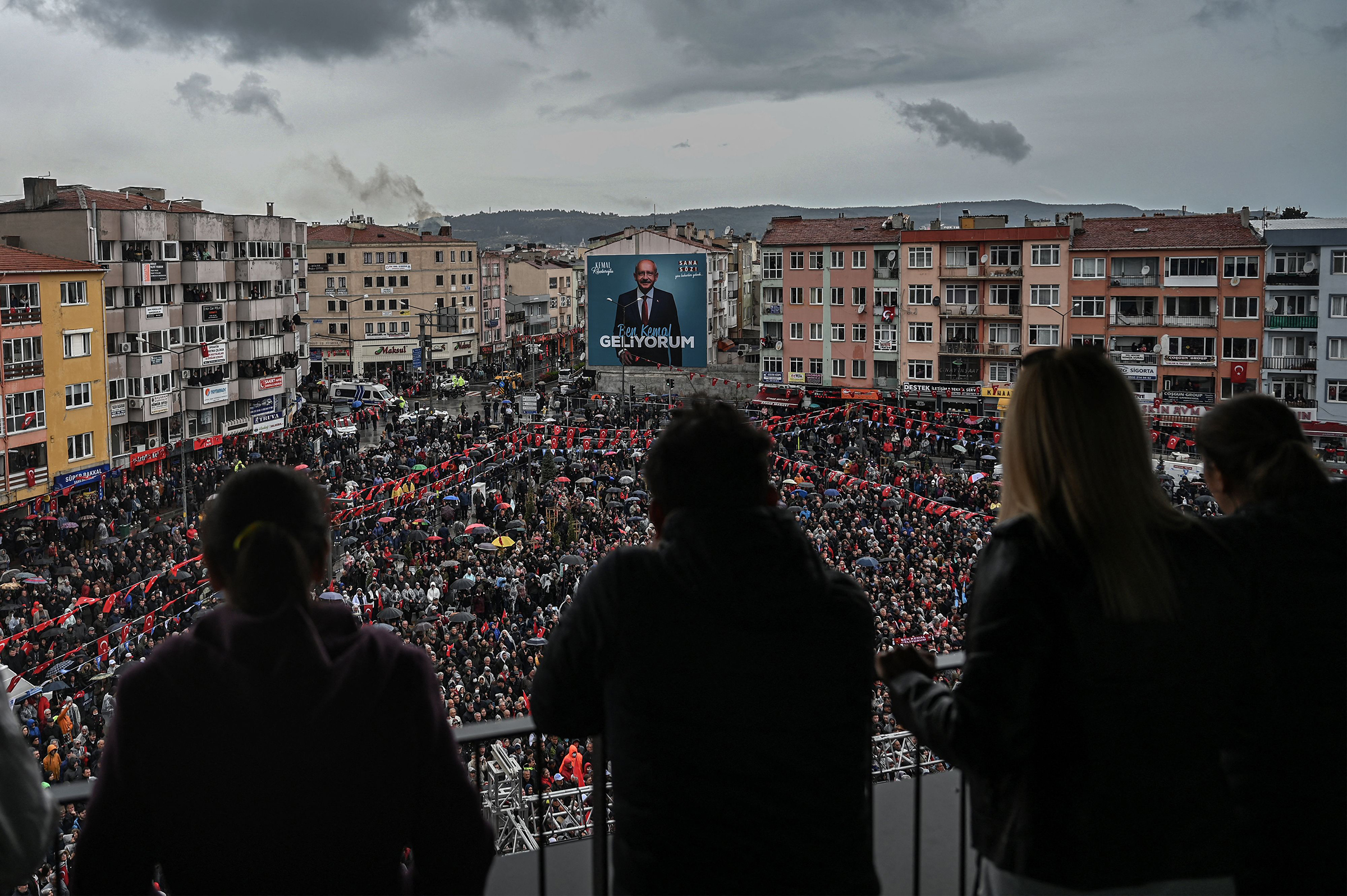
Alper Malgaç, 32, who is selling bread at a kiosk on the square, says he will vote for CHP because of economic problems, even though he wishes İmamoğlu was the candidate. “Kılıçdaroğlu is a good speaker, but not as good as him,” he says.
Nonetheless, the CHP head appears to be in the lead. A Metropoll survey this month found that 42.6% plan to vote for Kılıçdaroğlu and 41.1% for Erdoğan, with the rest split among smaller candidates. If no candidate gets more than 50%, the top two will go to a second round. (For parliament, most polls put the AKP-led alliance a few points ahead of the opposition coalition.)
But while Erdoğan’s ratings have dropped since the earthquakes, Kılıçdaroğlu’s have been mostly static. “I worry most people’s impressions of Kılıçdaroğlu are locked in,” says Sazak, the opposition consultant.
Metropoll director Özer Sencar says the president still enjoys a more dedicated base and is perceived as better on what Turks say they value in a contender: past success and strong leadership. “The election results will not be determined by Kılıçdaroğlu’s success, but by the extent that Erdoğan fails,” he adds.
Since the president controls much of the judiciary and other government bodies, analysts say Kılıçdaroğlu would need to win with more than a narrow margin. Otherwise, Erdoğan could, for instance, pressure Turkey’s electoral council to cancel the results and hold a redo, as he did when İmamoğlu narrowly won the Istanbul mayoral election. (Angry voters gave İmamoğlu a landslide victory in the rerun.)
If that happens, analysts say it would probably provoke mass demonstrations like those that forced Erdoğan to back down from plans to build a replica Ottoman-era military barracks in Gezi Park in downtown Istanbul in 2013. Hundreds of thousands of protesters took to the streets there and in other cities, clashing with police firing tear gas and water cannons. At least eight people were killed and thousands injured.
Is the “bureaucrat of the year” ready to lead such resistance if Erdoğan loses but refuses to go? Kılıçdaroğlu claims that won’t be necessary. “Erdoğan will lose, and he will go. Society will condemn him to go,” he says. “Turmoil benefits Erdoğan. We don’t need chaos, we need to convey to a broad audience that we are right.”
But his supporters may be ready to take to the streets even if Kılıçdaroğlu isn’t. Nevzat Taşcı, a 25-year-old student at Istanbul’s Galatasaray University who works with a youth voter group, predicts that there will be huge protests if Erdoğan resists defeat. He would likely join them; as he sees it, the Kılıçdaroğlu campaign is about much more than just the candidate.
“We don’t expect to get excited about his speeches,” Taşcı says. “We expect to win and change the country.”
More Must-Reads from TIME
- Why Biden Dropped Out
- Ukraine’s Plan to Survive Trump
- The Rise of a New Kind of Parenting Guru
- The Chaos and Commotion of the RNC in Photos
- Why We All Have a Stake in Twisters’ Success
- 8 Eating Habits That Actually Improve Your Sleep
- Welcome to the Noah Lyles Olympics
- Get Our Paris Olympics Newsletter in Your Inbox
Contact us at letters@time.com
